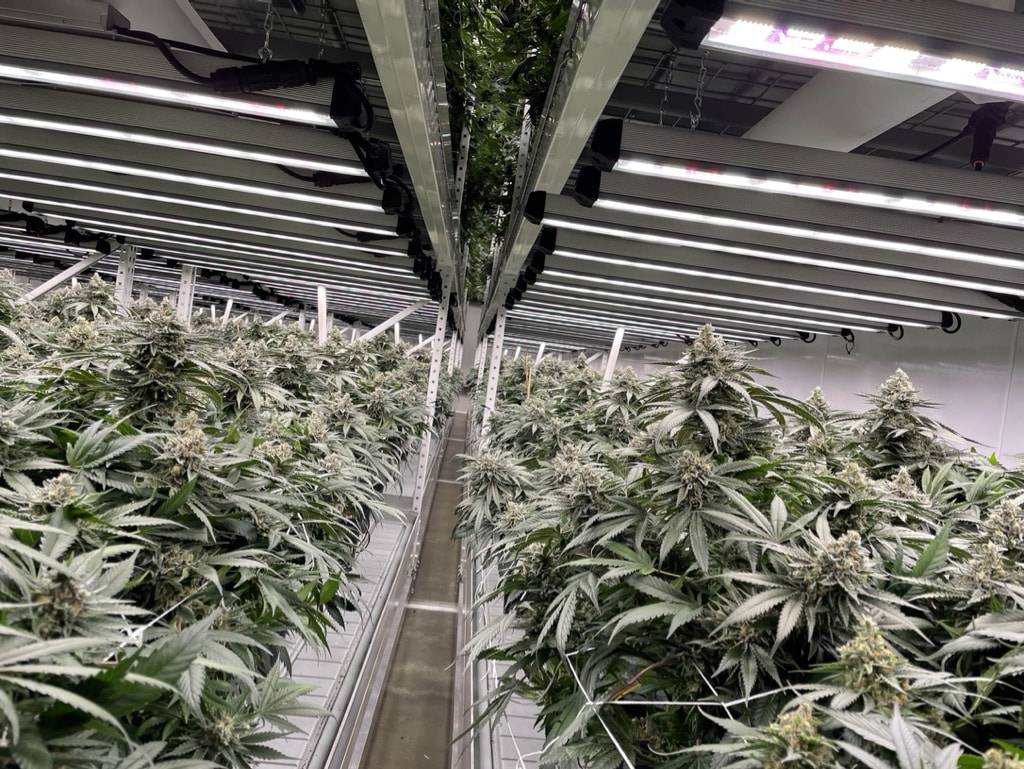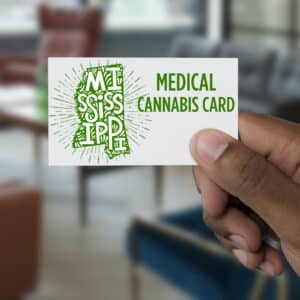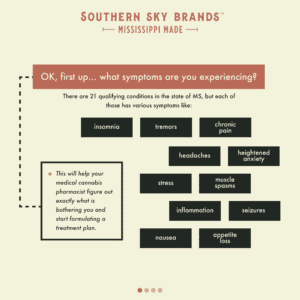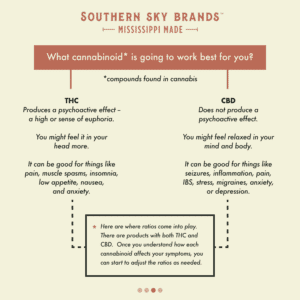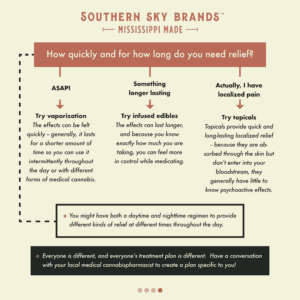Is marijuana legal in Mississippi?
Medical cannabis is legal, however adult recreational use remains illegal. The state has decriminalized some amounts of cannabis. Thus, possession of up to an ounce of cannabis will get you a fine of $100 to $250 for your first offense.
Can you get a medical marijuana card in Mississippi?
The Mississippi State Department of Health said that their medical card application process has begun and that patients will only have a five-day approval time for the MMJ program. Complete information is here.
What are the fees?
The fees for a patient card will be $25. (Full fees for patients are outlined in Section 21 of SB2095.)
The fees for medical marijuana businesses are tiered according to the size of the business and can be found in Section 18 of SB2095.
What is medical marijuana?
Medical marijuana uses the marijuana plant or chemicals in it to treat diseases or conditions. It’s basically the same product as recreational marijuana, but it’s taken for medical purposes.
The marijuana plant contains more than 100 different chemicals called cannabinoids. Each one has a different effect on the body. Delta-9-tetrahydrocannabinol (THC) and cannabidiol (CBD) are the main chemicals used in medicine. THC also produces the “high” people feel when they smoke marijuana or eat foods containing it.
What medical conditions are marijuana prescribed for in Mississippi?
Mississippi medical marijuanas law states that you can get a medical card for the following qualifying conditions:
- Cancer
- Parkinson’s disease
- Huntington’s disease
- Muscular dystrophy
- Glaucoma
- Spastic quadriplegia
- HIV/AIDS
- Hepatitis
- ALS
- Crohn’s disease
- Ulcerative colitis
- Sickle-cell anemia
- Alzheimer’s disease
- Agitation of dementia
- PTSD
- Autism
- Pain refractory to appropriate opioid management
- Diabetic/peripheral neuropathy
- Spinal cord injury or disease
- Chronic, terminal, or debilitating disease or medical conditions (or its treatment) that produces the following conditions:
- Cachexia
- Chronic pain
- Severe or intractable nausea
- Seizures
- Severe or persistent muscle spasms, including those characteristic of multiple sclerosis
How does it help?
Cannabinoids — the active chemicals in medical marijuana — are similar to chemicals the body makes that are involved in appetite, memory, movement, and pain.
Limited research suggests cannabinoids might:
- Reduce anxiety
- Reduce inflammation and relieve pain
- Control nausea and vomiting caused by cancer chemotherapy
- Kill cancer cells and slow tumor growth
- Relax tight muscles in people with MS
- Stimulate appetite and improve weight gain in people with cancer and AIDS
How do you take it?
To take medical marijuana, you can:
How to find a medical marijuana caregiver in Mississippi
Finding a medical marijuana caregiver in Mississippi is easy. Typically, those who are underage will have their parent or guardian act as a caregiver. If you’re elderly and have a caregiver at home, this person can also act as your MMJ caregiver. They just have to have the following qualifications:
- Be at least 21 years old
- Be a current Mississippi resident
- Don’t have any license, ID, or state-issued document that the MMJ program has revoked
- Cannot have been convicted of a disqualifying criminal condition in the last five years
- If they have a medical license, the license must be in good standing
- Cannot already be a caregiver to a qualified patient
When will Mississippi dispensaries open?
Medical Marijuana Dispensaries are open now! Find the list HERE.
What are the side effects?
While generally considered safe, CBD & THC may cause drowsiness, lightheadedness, nausea, diarrhea, dry mouth, and, in rare instances, damage to the liver. Taking CBD or THC with other medications that have similar side effects may increase the risk of unwanted symptoms or toxicity. In other words, taking CBD or THC at the same time with OTC or prescription medications and substances that cause sleepiness, such as opioids, benzodiazepines (such as Xanax or Ativan), antipsychotics, antidepressants, antihistamines (such as Benadryl), or alcohol may lead to increased sleepiness, fatigue, and possibly accidental falls and accidents when driving. Increased sedation and tiredness may also happen when using certain herbal supplements, such as kava, melatonin, and St. John’s wort. Taking CBD or THC with stimulants (such as Adderall) may lead to decreased appetite, while taking it with the diabetes drug metformin or certain heartburn drugs (such as Prilosec) may increase the risk of diarrhea.
Can CBD or THC alter the effects of other drugs?
Many drugs are broken down by enzymes in the liver, and CBD & THC may compete for or interfere with these enzymes, leading to too much or not enough of the drug in the body, called altered concentration. The altered concentration, in turn, may lead to the medication not working, or an increased risk of side effects. Such drug interactions are usually hard to predict but can cause unpleasant and sometimes serious problems.
Researchers from Penn State College of Medicine evaluated existing information on five prescription CBD and delta-9-tetrahydrocannabinol (THC) cannabinoid medications: antinausea medications used during cancer treatment (Marinol, Syndros, Cesamet); a medication used primarily for muscle spasms in multiple sclerosis (Sativex, which is not currently available in the US, but available in other countries); and an antiseizure medication (Epidiolex). Overall, the researchers identified 139 medications that may be affected by cannabinoids. This list was further narrowed to 57 medications, for which altered concentration can be dangerous. The list contains a variety of drugs from heart medications to antibiotics, although not all the drugs on the list may be affected by CBD-only products (some are only affected by THC). Potentially serious drug interactions with CBD & THC included
- a common blood thinner, warfarin
- a heart rhythm medication, amiodarone
- a thyroid medication, levothyroxine
several medications for seizure, including clobazam, lamotrigine, and valproate.
Can my gun be taken away for using medical Cannabis
A federal judge has ruled that a federal law prohibiting people who use marijuana from owning firearms is unconstitutional, Complete details HERE
Find What's Right for You.
Copyright © 2024 Southern Sky Brands |
Site by CannaPlanners

Are you over 21 years of age?
You are not old enough to view this website.

